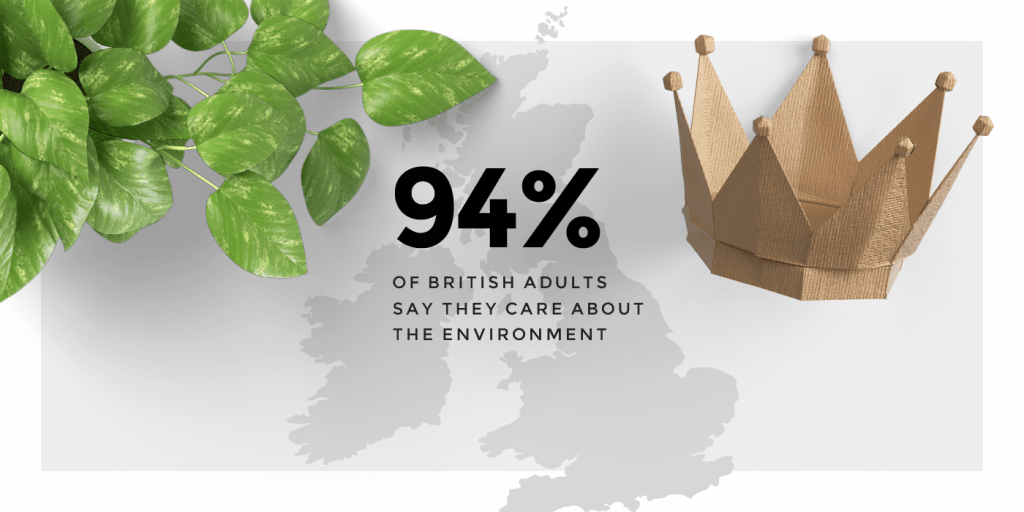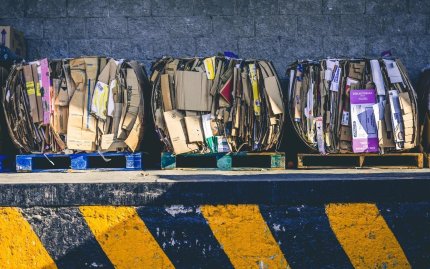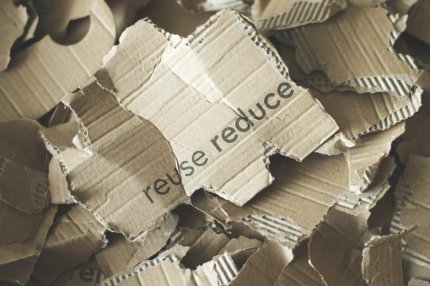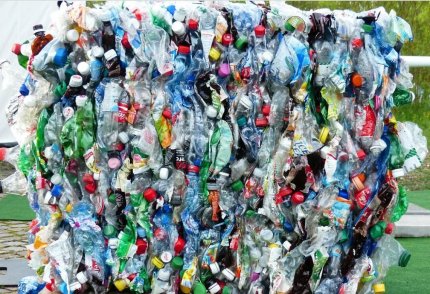As individuals, could we be doing more to help the environment? We looked a little closer at some of the UK’s recycling habits and learnt that on average, every seven weeks people in the UK throw away their own body weight in rubbish.[i]
The benefits of recycling are clear. Manufacturing one aluminium drinks can uses the same amount of energy as recycling twenty.[ii] What’s more, there would be 14 million fewer full dustbins every year if we recycled all the aluminium drinks cans sold in the UK.[iii] All our Rajapack cardboard boxes are 100% recyclable and we’re always working towards growing our range of environmentally-friendly packaging solutions.
What are the effects of not recycling as much as we could? Earth Overshoot Day gives us an idea of how much we are harming the environment.
Earth Overshoot Day
We use more from nature than the planet can renew. Earth Overshoot Day marks the date each year when we have consumed more than can be regenerated. Thirty years ago, in 1987, this day fell on the 19th December. Ten years ago, 2007, it was 26th October.[iv] In 2017 Earth Overshoot Day falls on the 2nd August.
This is a clear indication we need to start doing more to help the environment. So, we decided to find out a bit more about the public’s attitudes to recycling. Local councils provide plastic crates, bins and bags – usually free of charge – specifically to make recycling easier for us. But is it working?
Are we a throwaway society?
Since 2010, the amount the UK recycles has been increasing. However, in 2015 this rate dropped.[v] To find out a little more about this decline, we commissioned a YouGov survey to find out how the British public really feels about recycling.
Our results show that almost everyone in Great Britain says they care about the environment (94%), but almost half of them (47%) feel they could recycle more than they currently do. This is despite almost three-quarters of the British public (74%) thinking their local council makes it easy for them to recycle. Do people simply not have the time to sort out their recycling?
We found out that although almost everyone in the country knows that aluminium cans can be recycled (96%), only 76% of those who use them say they recycle them every time. In Wales, 100% of people who responded to our survey knew that aluminium can be recycled, but only 80% said they recycle their empty cans every time.
Does a lack of knowledge around what can be recycled contribute to people not recycling more? Polystyrene isn’t a commonly recycled material, but some councils do accept it at household recycling centres.[vi] Yet over a third of Brits (37%) think polystyrene can be recycled, while nearly half of them believe it can never be recycled. Only 13% of those in Britain admitted they didn’t know.
Recycling cardboard
One of the most common packaging materials in the UK is corrugated cardboard[vii], which means most of us will probably have it in our homes in some form. The good news from our survey is Brits are more likely to recycle cardboard than any other material we asked about, with 79% of people who use it saying they always recycle it.
Our findings back up the statement that cardboard has the best recycling rate of any packaging material in the UK. This high rate of recycling means that cardboard boxes made in the UK contain up to 76% recycled material, on average. Some boxes are constructed from 100% recycled material. [viii]
How can we improve?
Although it’s worrying that recycling rates in the UK have dropped from previous years, it isn’t too late to do something about it. With people in the UK willing to admit they aren’t always sure what can be recycled, there is scope to educate people about what can and can’t be put into their recycling bins.
Many businesses are beginning use more eco-friendly packaging solutions. At Rajapack, we offer eco-friendly and recycled packaging across our range and our Packaging Specialists are always on hand to provide information on how to make more environmentally-responsible packaging choices.
If you want to find out more about what you can recycle in your local area, this tool from Recycle Now will tell you everything you need to know.
All figures, unless otherwise stated, are from YouGov Plc. Total sample size was 2026 adults. Fieldwork was undertaken between 17th-18th July 2017. The survey was carried out online. The figures have been weighted and are representative of all GB adults (aged 18+).
[i]http://www.amgen-cymru.com/recycling_facts.php
[ii]http://www.amgen-cymru.com/recycling_facts.php
[iii]http://www.amgen-cymru.com/recycling_facts.php
[iv] http://www.overshootday.org/newsroom/past-earth-overshoot-days/
[v]https://www.gov.uk/government/uploads/system/uploads/attachment_data/file/593040/UK_statsonwaste_statsnotice_Dec2016_FINALv2_2.pdf
[vi] https://www.recyclenow.com/what-to-do-with/polystyrene-1
[vii] http://www.paper.org.uk/information/factsheets/Corrugated%20key%20facts%20May16.pdf
[viii] http://www.paper.org.uk/information/factsheets/Corrugated%20key%20facts%20May16.pdf






















